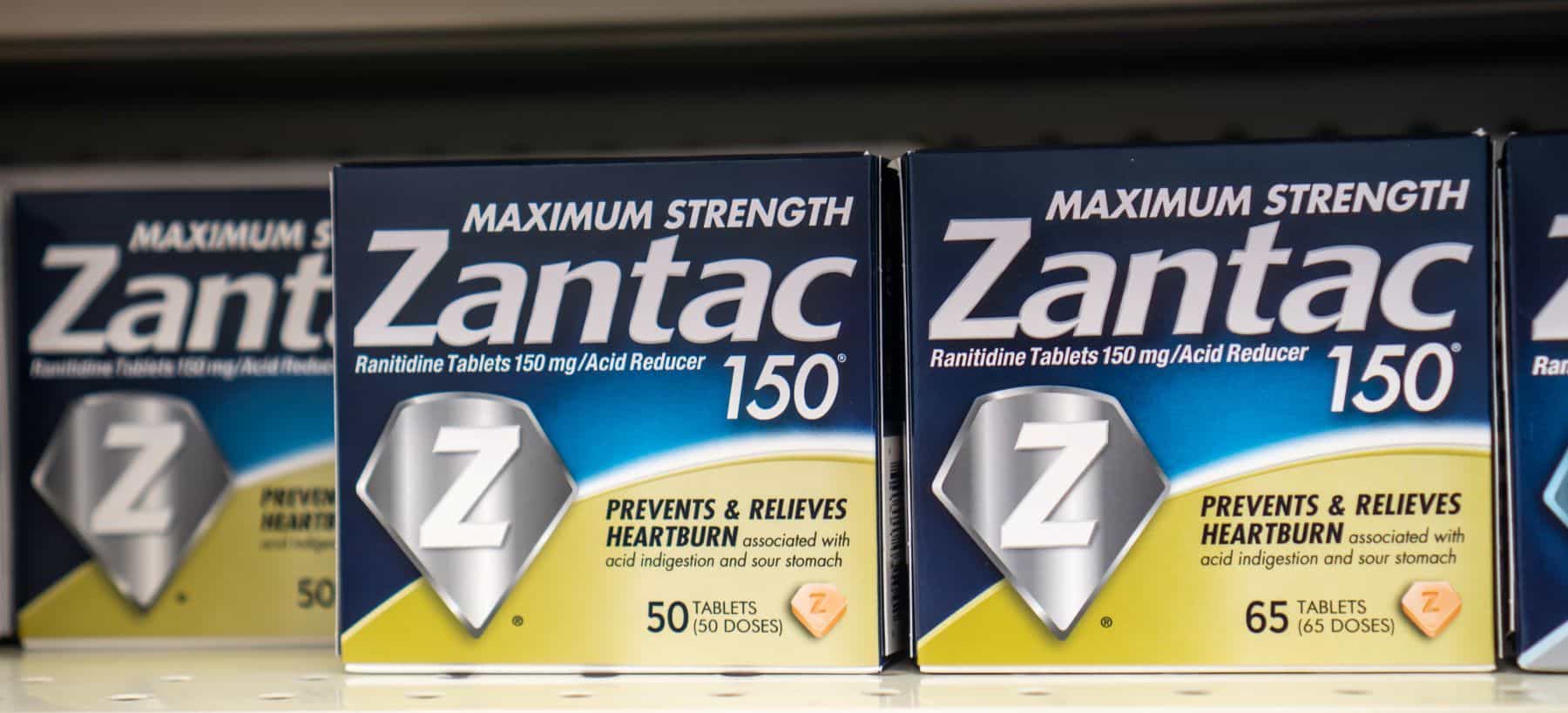Litigation Guides
Zantac Recall Litigation Guide
Zantac—the branded name for the drug ranitidine—was a household heartburn medication until an FDA recall revealed its hidden health risks. In 2019, a carcinogen called N-nitrosodimethylamine (NDMA) was discovered within Zantac, prompting an initial FDA warning. Upon further testing, the elevated presence of cancer-causing NDMA was confirmed. The FDA formally requested all ranitidine drugs to be removed from market in April 2020. Zantac was a trusted acid reflux medication on the U.S. market since 1983, so the cancer links were a shocking revelation for millions of users. In response, Zantac users have been quick to launch class action lawsuits against the drug’s manufacturers. Since the initial discovery of NDMA in September 2019 within Zantac medications, conflicting information has been disseminated to the public about the drug’s risks—all of which will factor into the current litigation. If the way Zantac’s FDA testing was handled is any indicator, it is likely that even more information will be disclosed concerning Zantac’s danger as litigation progresses. As you prepare upcoming litigation in the wake of the Zantac recall, this is what you need to know.

Written By
Wendy Ketner, M.D.
Medically Reviewed
Zantac’s History
Ranitidine was first developed in 1977 by the British pharmaceutical company, GlaxoSmithKline (GSK). In 1983, Zantac was approved by the FDA as a short-term ulcer treatment and became widely available in the U.S. By 1988, it was considered the world’s best-selling drug, with $1 billion in annual sales. By this time, Zantac was being used to treat more than just common ulcers. The drug was also a common treatment for heartburn and gastroesophageal reflux disease (GERD).
In 1997, GSK’s U.S. patent for Zantac expired. Competitors began manufacturing generic ranitidine drugs alongside the brand name, Zantac. In 2004, Pfizer developed the first non-prescription version of Zantac, which was made available over-the-counter (OTC). The Zantac brand was purchased from Pfizer first by Johnson & Johnson, then by Boehringer Ingelheim Pharmaceuticals, and then, most recently, by Sanofi SA. Generic over-the-counter versions were also released to the U.S. market. In 2018, Zantac was prescribed to over 25 million patients. The drug made $124 million in sales in the United States.
How Zantac Works
Zantac is commonly used to treat peptic ulcers, GERD, and heartburn. It works by effectively blocking histamine receptors in the stomach lining to decrease stomach acids. Ranitidine belongs to a class of antacid drugs called histamine-2 receptor agonists. These drugs work by preventing the production of stomach acid via an enzyme called the proton pump. Zantac starts relieving symptoms of heartburn and related conditions in about 30 minutes. The drug’s acid prevention benefits can last for up to 12 hours per dosage.
The Dangers of Zantac & NDMA
The dangers of Zantac and generic ranitidine drugs were first uncovered by Valisure, a Connecticut-based online pharmacy, in September 2019. The company informed the FDA that it found shocking levels of NDMA in the drug. The acceptable daily limit of NDMA is 96 nanograms, but Valisure found over 3,000,000 nanograms in every lot of ranitidine that it tested.
In response to this discovery, the FDA issued a statement warning that some ranitidine medications may contain NDMA. The FDA also recommended that manufacturers test their products via Liquid Chromatography-High Resolution Mass Spectrometry (LC-HRMS). Manufacturers were also asked to send in samples for further examination. Following this announcement, ranitidine manufacturer, Sandoz, issued a voluntary recall for 14 lots of its prescription capsules. Walgreens, CVS Pharmacy, Rite-Aid, and Walmart also suspended all sales of Zantac and its generic counterparts.
Expert insights have never been more important.
The FDA’s Zantac Testing
On November 1, 2019, the FDA released its own test results. The agency concluded that the levels of NDMA in ranitidine were similar to the levels found in “common foods like grilled or smoked meats.” The tests were not done on humans. Rather, they were conducted using simulations of what would happen upon ranitidine’s exposure to acids in the stomach. The FDA concluded that ranitidine would not form NDMA in the intestines.
However, the FDA also found that some of the tested medications contained levels of NDMA that exceeded acceptable amounts and asked companies to issue voluntary recalls. By January 2020, 14 generic Zantac manufacturers had issued recalls in the United States. All 14 recalls followed the FDA’s advisory that drugmakers should test all ranitidine-containing products.
Zantac’s Recall
On April 1, 2020, the FDA requested that all manufacturers withdraw prescription and over-the-counter medications containing ranitidine from the market immediately. Unlike the previous testing that revealed no critical danger, the FDA had since determined that the amount of NDMA present in Zantac increased over time, especially when the drug was stored at high temperatures. This could result in unacceptable daily intake levels of NDMA. The announcement advised consumers to stop taking ranitidine medications or to speak with their health care providers about safe alternatives.
As a known human carcinogen, NDMA is naturally present in some foods and in water. At low levels, it is not expected to increase one’s risk of cancer. However, the NDMA levels observed in ranitidine products presented clear cancer risks. The FDA also determined that the “inherent instability” of the ranitidine molecule supports NDMA formation both within the medication and within the human body upon digestion.
Ongoing Zantac Class Actions
In September 2019, the first class action lawsuit against Zantac manufacturers, Sanofi and Boehringer Ingelheim, was filed in the Northern District Court of California. The four plaintiffs alleged that the defendants failed to warn consumers of the dangers associated with the medication. The complaint further alleges Zantac’s inherent design defect—that the drug reacts within the human body, creating potentially harmful amounts of NDMA.
A second lawsuit was filed in the District Court of New Jersey just a week later, echoing the initial allegations. By February 2020, more than 140 similar lawsuits were filed against Zantac manufacturers in federal courts. This resulted in consolidation by the Judicial Panel for Multidistrict Litigation to the Southern District of Florida. The transfer order also includes actions brought individually by plaintiffs. As of May 2020, the consolidation captured 230 lawsuits. This number is only expected to grow.
Expert Witnesses for Zantac Litigation
As in any product liability case, medical experts will be critical in the outcome of these class actions. Oncologists, particularly those who specialize in the affected areas, such as gastrointestinal oncologists, will undoubtedly be needed to establish the plaintiffs’ cancer diagnoses.
Perhaps even more importantly, a link between the injury and the medication must be demonstrated. The higher and more frequent the dose, the greater likelihood that the plaintiff developed cancer from the medication. It is important to remember that the FDA approves NDMA exposure within a certain limit. As such, plaintiffs must prove that Zantac, and other ranitidine medications, exceeded the recommended daily intake of NDMA.
Establishing the Zantac-cancer connection will likely require the expertise of toxicologists who are versed in the carcinogenic effect of NDMA on the human body. For example, the International Agency for Research on Cancer (IARC) lists NDMA as a chemical probably carcinogenic to humans, while the U.S. National Toxicology Program “reasonably anticipated” it to be a human carcinogen. In fact, the National Toxicology Program uses NDMA in laboratory settings to induce cancer in rats. Such testing can prove useful during a trial in proving NDMA’s effects on humans.
About the author
Wendy Ketner, M.D.
Dr. Wendy Ketner is a distinguished medical professional with a comprehensive background in surgery and medical research. Currently serving as the Senior Vice President of Medical Affairs at the Expert Institute, she plays a pivotal role in overseeing the organization's most important client relationships. Dr. Ketner's extensive surgical training was completed at Mount Sinai Beth Israel, where she gained hands-on experience in various general surgery procedures, including hernia repairs, cholecystectomies, appendectomies, mastectomies for breast cancer, breast reconstruction, surgical oncology, vascular surgery, and colorectal surgery. She also provided care in the surgical intensive care unit.
Her research interests have focused on post-mastectomy reconstruction and the surgical treatment of gastric cancer, including co-authoring a textbook chapter on the subject. Additionally, she has contributed to research on the percutaneous delivery of stem cells following myocardial infarction.
Dr. Ketner's educational background includes a Bachelor's degree from Yale University in Latin American Studies and a Doctor of Medicine (M.D.) from SUNY Downstate College of Medicine. Moreover, she is a member of the Board of Advisors for Opollo Technologies, a fintech healthcare AI company, contributing her medical expertise to enhance healthcare technology solutions. Her role at Expert Institute involves leveraging her medical knowledge to provide insights into legal cases, underscoring her unique blend of medical and legal acumen.
Subscribe to our newsletter
Join our newsletter to stay up to date on legal news, insights and product updates from Expert Institute.
Working on a Zantac case?
We're here to help you build a stronger case. Retain a leading expert witness today.
Access tailored expertise on every case
Trust your expert immediately
Speak with your expert before retaining
Need your medical records reviewed? Consult one of our 75+ on-staff physicians who can help evaluate the strengths and weaknesses of your case.




